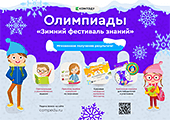ГУО «Средняя школа №14 г. Солигорска»
План-конспект открытого урока
английского языка в 4 классе
то теме «Школа»
Коммуникативная ситуация
«Школьная газета»
Учитель английского языка
Второй квалификационной категории
Бурта Данута Михайловна
Солигорск, 2018
Тема: Школа
Урок 8 «Школьная газета»
Цель: развивать навыки чтения, говорения и слушания по теме «Школа»,
Задачи:
- развивать лексические и грамматические знания по теме «Школа»;
- развивать умение слушания и говорения, использование лексических структур по теме «В школе»,
- развивать грамматические навыки (составлять и использовать предложения в Present Continious Tense);
- формирование познавательной активности учащихся;
Планируемый результат: планируется, что к концу урока ученики самостоятельно используя лексику и грамматику урока создадут проект школьной газеты,
Оборудование урока:
- Английский. 4-й класс. Часть 2. Учебник 2. Авторы: Лапицкая Л.М., Калишевич А.И., Севрюкова Т.Ю., Седунова Н.М.
- Английский. 4-й класс. Рабочая тетрадь 2. Часть 2. Авторы: Лапицкая Л.М., Калишевич А.И., Севрюкова Т.Ю., Седунова Н.М.
- карточки с лексикой по теме «At school»
- карточки с лексикой по теме «Activities on the lessons»
- карточки для оформления школьной газеты
School
Lesson 9 “Friends are always friends”
Aim: to develop reading, speaking and listening skills on the topic of “School”
Tasks:
- to develop lexical and grammatical knowledge on the topic " School";
- to develop the skill of listening and speaking, the use of lexical structures "At school"
- to develop grammatical skills (to make sentences in Present Continious Tense);
- to form the cognitive activity of pupils;
Cognitive purpose: It is planned that by the end of the lesson the students will independently use the vocabulary and grammar of the lesson to create a school newspaper project
Lesson equipment:
- English. 4th grade. Textbook part 2. Authors: Lapitskaya L.M., Kalishevich A.I., Sevryukova T. Yu., Sedunova N.M.
- English. 4th grade. Workbook Part 2. Authors: Lapitskaya L.M., Kalishevich A.I., Sevryukova T. Yu., Sedunova N.M.
- cards with the vocabulary on the topic " At school "
- cards with the vocabulary on the topic " Activities on the lessons "
- cards for the school newspaper
Lesson plan
| Stages of the lesson | Time | Didactical task | The content of the lesson phase | Teacher Activities | Pupils’ activity |
| I. Organizing stage |
| Preparing pupils for the lesson, stating the theme of the lesson, the goals, the formation of motivation | Greeting
Speech Warm-up | Greet pupils
How are you today? What day is it today? What’s your favourite school day? What lessons have you got in this day? What’s your favourite lesson? What do you do in Maths? What do you do in English? | Greet Teacher
Pupils answer the teacher’s questions |
| II. Phonetic workout
|
| Control and activation of vocabulary on the topic and grammar | Phonetic workout
| Riddles about different lessons. Boys and girls, guess my riddle: In this lesson you speak, read, learn chants, sing songs, write, and play games. (English) Please, make your riddle
What are we doing now? | Pupils guess the riddle and make their own riddles
|
| III. Reading |
| Motivate the need to read the text
| Talking with pupils before listening/ reading the text
| Every month Nikita’s classmates make a newsletter. How do you think, what is it? Why are they make it? If you write a newsletter, what do you want to (can) write in it?
Now, read their last newsletter and say. What’s the most interesting page?
Shared reading
| Pupils answer the questions
Pupils read newsletter for one part
than answer for pre-listening questions
|
| Stages of the lesson | Time | Didactical task | The content of the lesson phase | Teacher Activities | Pupils’ activity |
| IV. Moving activity |
| to change the type of activity, to give a rest | Active workout | Stand up. Listen to me carefully and do what I say: What can we do in PE…..? jump, run, walk, turn around, hands up and down OK, good What can we do in technology? make things, cook and ect | play the game
|
| V. Project |
| apply lexical and grammatical knowledge and skills in practice | independent work on the creation of a project | Now, let's try to create our class newsletter. Where to start? At first, divide into 3 teams: “Welcome to our school”- you can describe our school binding, classes, teachers, favourite places, what are you like to do at school and ect “Interviews”- you can describe you school life, you favourite lessons “Fun corner” - you can make riddles about your lessons; exercise “cross the odd one out”, scrambled words and ect.
Project presentation | Pupils work together in groups to create a newspaper |
| VII. Workbook activities |
|
|
| Ex.1 Dictation
Ex.2 Cross the odd one out
|
|
| Stages of the lesson | Time | Didactical task | The content of the lesson phase | Teacher Activities | Pupils’ activity |
| VI. Round-up |
| check the knowledge of children at the end of the lesson
to explain the marks for the lesson | Summing up the lesson
Marking out | Now, let’s play “Snowball game” “I like maths. – Tania likes maths, and I like Art. …”
Marks for today's lesson…
| Pupils play a game
|
| VII. Homework |
| to explain homework | explanation of homework | WB ex.3 do the crossword | write down the homework in their diaries |
| VIII. Reflection |
| check the emotional state of pupils at the end of the lesson | Checking the emotional state | “Ladder of feelings” How do you feel in the end of the lesson? Put your sticker on the step with a smile
And now I have some presents for you, thank you for the lesson. Goodbye! |
pupils do the teacher’s task |






